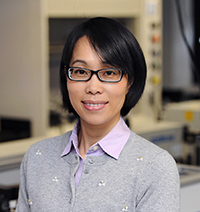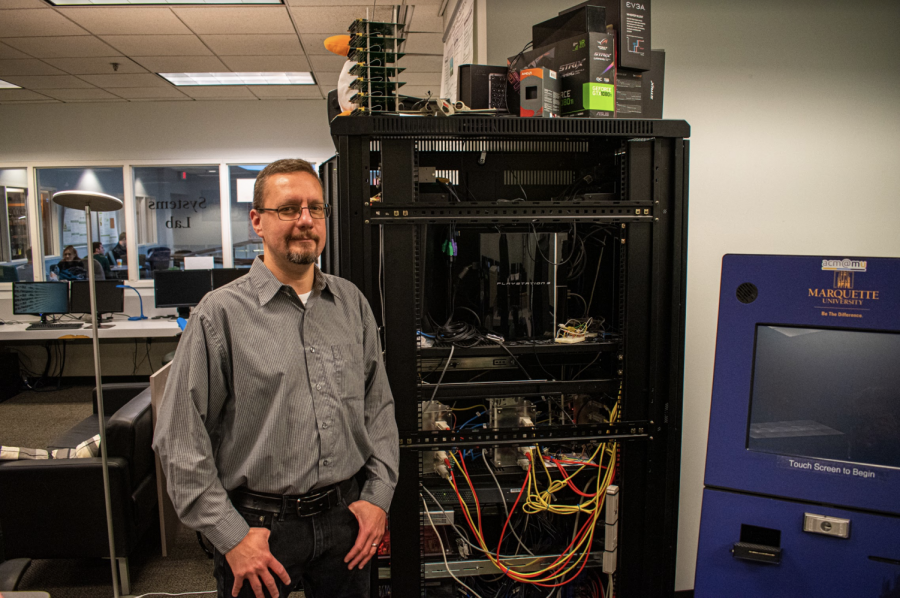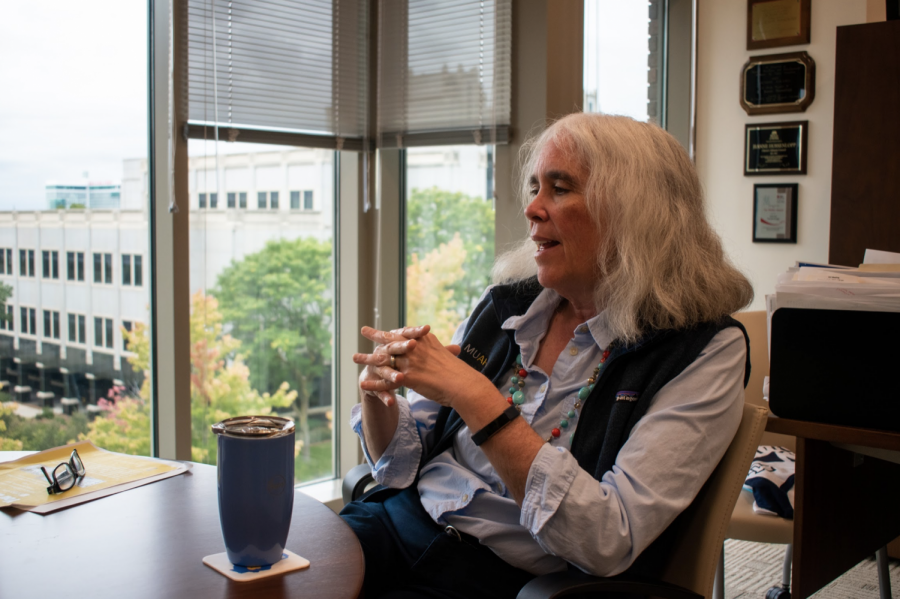
Assistant chemistry professor Jier Huang was awarded a $555,636 grant from the National Science Foundation for her work in solar energy conversion.
Huang’s studies focus on developing new materials that can create energy from sunlight.
“I am very excited about being awarded a NSF CAREER grant,” Huang said. “It’s a very important grant to support the research in my group and my early career. ”
Huang currently works in conjunction with Tianquan Lian, a professor at Emory University, as well as undergraduate and graduate students at Marquette. Huang joined Marquette’s staff in 2013.
“I really enjoy the research,” Brian Pattengale, a third-year chemistry graduate student said. “She has a really good vision for the project and has good ideas on how to improve solar energy conversion.”
Pattengale worked with Huang for the past three years in the chemistry department working with physical and material chemistry.
“I found her research on the Marquette website and was really interested,” he said.
According to Pattengale, the research will be spent solely on furthering research and possibly supporting graduate students who are helping with the project.
“I enjoy doing the fundamental stuff,” he said. “It’s interesting to see how the zeolitic framework interacts with light for solar energy conversion.”
Huang and her team primarily study on Marquette’s campus. A few times during the year, her team will perform week-long experiments at the Argonne National Lab at the University of Chicago.
Pattengale added that the experiments focus on using X-ray absorption to study the fundamental properties of the materials being created and used.
“The goal is to use solar energy to generate hydrogen fuel,” he said. ” Also to provide a clean source of energy that will be able to solve the problems of pollution.”
Sizhou Yang, a physical chemistry graduate student, has worked with Huang for the past two and a half years. Yang said the grant is well deserved.
“I think she is a helpful person and a hard worker,” Yang said.”Her research is relevant and helpful.”
Marquette currently has solar panel research in the works but Huang’s team is attempting to create cheaper materials to replace them.
“Silicon cells themselves aren’t very expensive, but their upkeep is,” Pattengale said. “We want to replace the newer, less expensive materials for expensive ones and be able to compete with fossil fuels.”
Huang and her team have seen promise in using the new material.
“Solar energy is one of the best solutions to meet future energy demands,” Huang said. “There is a growing desire for conversion of solar energy into a usable energy format.”





